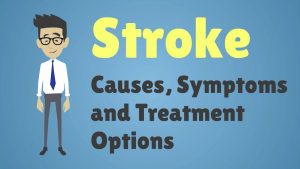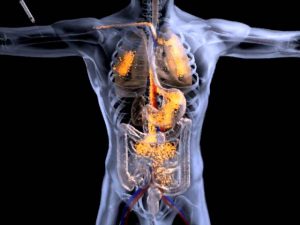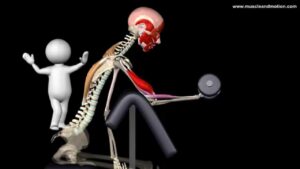BCAA Supplementation https://www.facebook.com/dyannparhamfitness https://www.parhamfitness.com I started using Branch Chain Amino Acids when I realized how protein deficient my nutritional plan had become. I am Dairy-FREE, Gluten-FREE and I limit my intake of animal proteins……all of which are great sources of essential amino acids. Branched-chain amino acids are essential amino acids (specifically, valine, leucine and isoleucine) meaning we must get them in our diet because our bodies do not produce them. The term ‘branched-chain’ just refers to the molecular structure amino acids. Amino Acids are the building blocks of protein (think: meat, dairy and legumes) and have various functions related to energy production during and after exercise so they are needed in adequate amounts A balanced diet with adequate protein provides enough BCAAs. As long as you’re getting enough dietary macronutrients—such as proteins, fat and carbohydrates—lean body mass, or muscle, will be spared. While BCAA supplementation may be useful for gaining mass, BCAAs are especially helpful for maintaining muscle mass while on a calorie-deficit diet. Dieting is catabolic, which means it can lead to muscle breakdown. The leaner a body gets, the more likely it is to lose muscle mass as the body tries harder and harder to hold onto body fat stores. In doing so, the body will turn to muscle to satisfy its energy needs. Working out compounds the metabolic effects of dieting. The leaner one becomes, the more lethargic one can become. Decreased energy intake and decreased glycogen storage can make you feel fatigued during your workouts. If you’re too tired or weak to workout at the maximum intensity level your body is used to your muscles will adapt, and they won’t use as much energy to get the work done. That means your body won’t increase lean muscle mass; it might also mean that your body will use lean muscle for energy because you aren’t using it to lift a heavy load or you are not working out at as intense of a level you are used to. BCAAs have even more positive benefits than reduced breakdown and increased protein synthesis. They might also help improve workout intensity! BCAAs compete with the amino acid tryptophan for entry into the brain, where tryptophan can be converted to the neurotransmitter serotonin. During exercise, serotonin levels rise and can increase the perception of fatigue—that means a less intense workout for you. BCAA supplementation reduces the amount of tryptophan that enters the brain, and therefore reduces the amount of serotonin produced. This might allow you to work harder, longer. BCAAs in supplement form are free-form, require no digestion, and are rapidly absorbed into the bloodstream. They spike blood amino acid levels to a much greater and faster extent than peptide-bound aminos. The reason BCAA supplements have such a powerful effect on blood-BCAA levels is that, unlike other amino acids, BCAAs are not significantly metabolized by the small intestine or the liver. They are metabolized primarily in skeletal muscles. With that in mind, BCAAs are often touted to help repair damaged muscles, decrease muscle soreness and increase muscle function. Some data shows that BCAA supplementation before and after exercise has beneficial effects for decreasing exercise-induced muscle damage and promoting muscle-protein synthesis. You can use BCAAs to prevent fatigue and improve concentration. But the most relevant to you, perhaps, is the common practice of taking branched-chain amino acids to improve exercise performance and reduce muscle breakdown.

BCAA Supplementation
- Post author:
- Post published:May 25, 2021
- Post category:Uncategorized
- Post comments:0 Comments
You Might Also Like

Shrugs-3

WHAT TO EAT BEFORE AND AFTER GYM (Best Pre and Post Workout Meals)

How to do a Donkey Kick Exercise

Gynecological Surgeries Video – 4

Human Internal Organs 3D Model From CreativeCrash.com

What is BMR? Learn all about BMR and calculate your RMR in this week’s video

Clinical Psychiatry Video – 3

BICEP EXERCISES FOR STRENGTH & DEFINITION

Yoga Exercises for Lungs

How to Do Back Extensions

What Does Your Liver Do?

Biotin Supplements for Hair Growth – Dr. Harish Prasad B.R Bangalore | Hair Fall Treatment In india

Stroke – Causes, Symptoms and Treatment Options

Biology – Role of hormones during puberty – English

Turmeric for Gynecomastia (Man Boobs Cure)

Mode of Action Animation (MOA)

How to Do One-Arm Preacher Curls and a Common mistake

Stability Ball Hyperextension
Biceps Exercises

Top 5 Best Protein Powders Ever

Human Body, Body Building Muscle Building Anatomy Physiology Video – 34

Cardiac surgery Video – 4

Cross Fit Training Video – 4

Definition Fitness Strength & Performance Centre

Gynecomastia Treatment – Is There Any Medical Treatment?

Sports Injuries Video – 4

What Muscle Groups Do Walking Lunges Work? : Dynamic Exercises

First Aid for a Heart Attack

Anabolic Steroids – History, Definition, Use & Abuse Video – 45

How to Do Seated Calf Raises

MusclePharm BCAA 3:1:2 amino acids capsule review

Insulin and glucagon

Opthalmogical/Eye Surgeries Video – 6

Tuberculosis, Causes, Signs and Symptoms, Diagnosis and Treatment.

For how long can one continue pantoprazole for acidity? – Dr. Nagaraj B. Puttaswamy

Calcium Supplement Video – 2

SEATED ROW MACHINE for BACK! (Hindi / Punjabi)

Intensity Meaning

After Effect video BMI

Smith Machine Close Grip Tricep Press

How To Lose Weight: Phentermine

